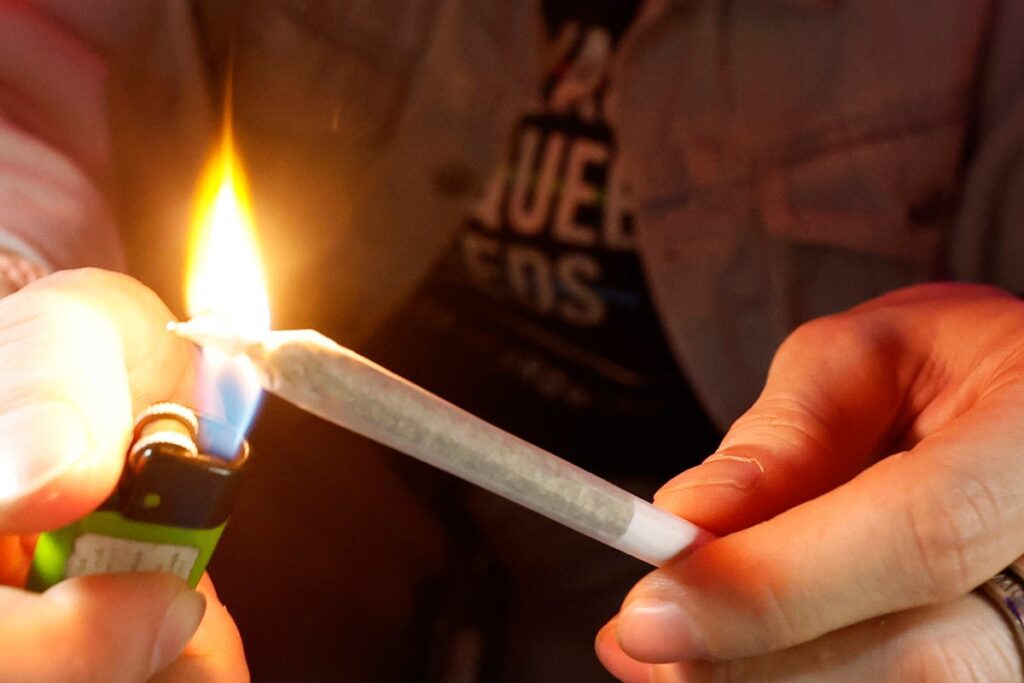Thailand’s Shift in Cannabis Policy: Regulation over Recriminalization
In a significant policy reversal, Thailand’s government is now focusing on regulating cannabis for medicinal use rather than reinstating it as a narcotic. This announcement comes from Deputy Prime Minister Anutin Charnvirakul, marking a change in direction after Prime Minister Srettha Thavisin had previously pledged to make cannabis illegal by the end of 2024. The situation illustrates the complexities surrounding cannabis regulation in the country, just two years after Thailand became one of the first nations in Asia to **[decriminalize marijuana](https://www.independent.co.uk/topic/marijuana)**.
Background on Cannabis Decriminalization
The decriminalization of cannabis in 2022 led to a rise in recreational use across Thailand, resulting in an influx of cannabis cafes and public concerns about potential misuse. While the policy aimed to support local farmers and repeal outdated drug laws, it also highlighted the need for a comprehensive regulatory framework.
– **Influx of Cannabis Cafes**: Thousands of cafes emerged, contributing to the growing public debate on cannabis use.
– **Public Concerns**: Increased recreational use led to worries about health and safety, creating demand for a more structured regulatory approach.
The New Regulatory Approach
Deputy Prime Minister Charnvirakul confirmed that the government is now preparing to draft legislation that focuses on responsible cannabis use. This decision follows discussions that involved key government figures, including Prime Minister Thavisin, indicating a more cooperative approach among coalition partners.
Charnvirakul expressed appreciation for Thavisin’s new direction, stating, “I thank the prime minister for considering this matter and deciding on issuing an act.” This shift demonstrates a willingness to engage in constructive dialogue about the future of cannabis policy in Thailand.
Potential Economic Impact
The cannabis industry in Thailand is booming, with projections estimating its worth could reach up to **$1.2 billion (£929 million)** by 2025. The Bhumjaithai Party, which has championed cannabis as a new cash crop for farmers, remains a critical player in this evolving narrative. The party’s stronghold in impoverished regions emphasizes the economic potential of establishing a regulated cannabis market.
Next Steps: Legislative Process and Public Debate
The proposed regulations will soon be debated in parliament. Points of discussion include whether cannabis should be classified as a narcotic, a decision that ultimately rests with legislative bodies.
Key points to consider:
– **Draft Legislation**: A draft law on cannabis regulation was submitted under the previous administration but was stalled due to a parliamentary dissolution before the elections.
– **Public Discussion**: Ongoing public debate will influence the final structure of the legislation.
What Lies Ahead for Cannabis in Thailand?
While the government seems to favor a regulated approach, it’s unclear whether there will be efforts to rein in recreational cannabis use. Prime Minister Thavisin has previously indicated a desire to combat excessive recreational use, but the deputy prime minister has vowed to oppose strict measures against it.
As the country navigates these turbulent waters, the alignment among coalition parties suggests a more unified front on the cannabis issue compared to past governance. Analysts, such as Nattabhorn Buamahakul of Vero Advocacy, believe this collective stance may enable the government to establish clearer guidelines moving forward.
The evolution of cannabis policy in Thailand is reflective of a broader global conversation about responsible drug use, legalization, and public health. The outcome of the upcoming legislative discussions will undoubtedly shape the future of cannabis in the country, impacting both its economy and societal norms.
For detailed updates, you can track the ongoing developments regarding **[cannabis regulations](https://www.independent.co.uk/topic/cannabis)** in Thailand.


